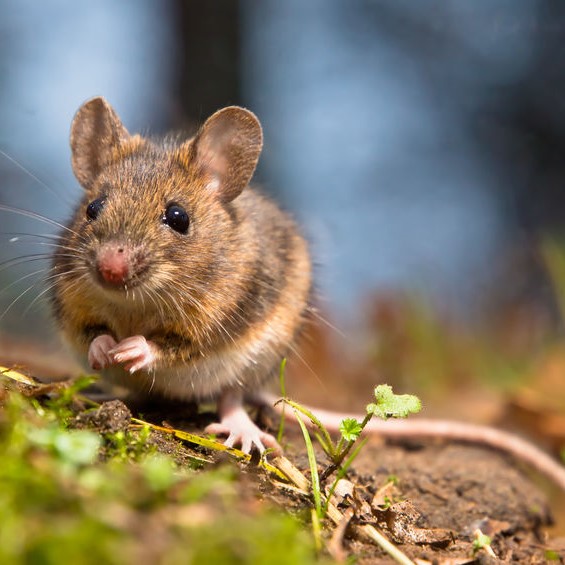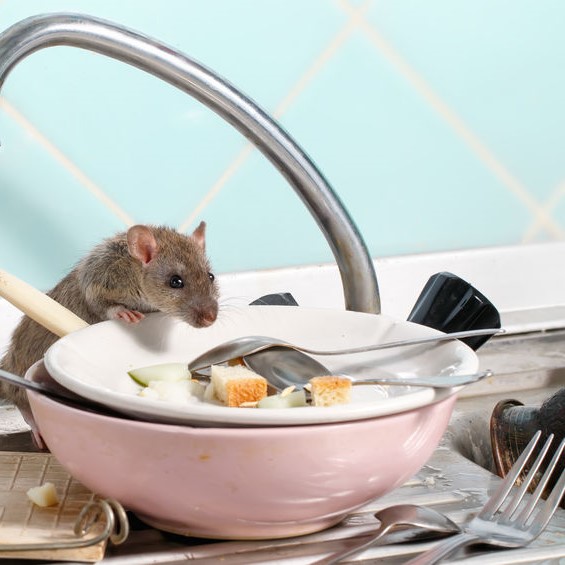
Can you get sick from mice in your house?
They may be cute on a carton like Mickey Mouse or Mighty Mouse, but when they are scampering through your house, they are not so cute! In fact, it is rather disgusting when you find rodent dropping under the kitchen sink or in the laundry room.
This time of the year when we’re getting our holiday decorations down from the attic, finding rodent droppings in attic is a common surprise that no homeowner wants. The first thing most people do is call an exterminator or start setting out poison and traps. With mice and mice droppings everywhere comes diseases and germs and more diseases.
The common mouse that we find in our homes or find signs of them by rodent droppings in house spread disease that can make a human extremely ill. Disease like hantavirus, listeria, and salmonellosis, all come from these critters and their droppings and can be deadly if an infestation takes hold of your home. Other facts you may not know about rodents and rodent droppings are:
- Quick Breeders: With those rodent droppings and diseases that come with them will spread fast because they breed fast. If you see one mouse, you can be sure there are others in your house too. Mice breed all year long and just one female mouse has as many as ten liters a year, each liter having as many as eight more mice. Within 90 days, you could have as many as 60 mice rampant in your home.
- Destructive: Believe it or not, a mouse in the house can cause it to catch fire and burn. How? Mice chew on anything and everything, from paper and plastic to concrete and wood, aluminum, drywall, rubber, and gas lines to human food and wiring. And when they get your attic and walls, that wire chewing becomes a fire hazard that you have no idea is happening, until you find rodent droppings in the attic, fireplace, under cabinets, etc.
- Intrusive: Mice are small and they can squeeze even smaller to fit into spaces the size of a dime. They will squeeze into cracks and holes of your foundation and find entry points in the walls, window frames, doorways, and chimneys. They come off trees onto the roof and into the attic vents and around exhaust pipes. These little critters climb, jump, and swim.
- Appetites: As we’ve mentioned already, mice eat anything and then leave rodent droppings behind. In the kitchen they will feast on boxes of grains, including cereal, which they can devour in short time because they eat as many as twenty times a day. They nest where they feed, and they leave rodent droppings where they nest and feed. Yes, mice are nasty.
What if I vacuumed mouse droppings?
Cleaning up mice nesting and areas where rodent droppings are found needs to be done with the utmost care in disinfecting and sanitizing. Do not sweep or vacuum rodent droppings, this will stir the air and release the disease ridden bacteria into the air that everyone breathes.
Wear face masks and disposable gloves while cleaning up mice nests and rodent droppings. Spray a disinfectant over the areas then por a bleach/water mixture over the area and allow to sit for five minutes. Use paper towels to clean it up, placing the used paper towels in a plastic bag, then take directly to your outside trash.
Reclean the area again with bleach/water mixture and paper towels. You cannot be too cautious in cleaning up after mice or any rodent droppings. Any human food packaging they have chewed into should be disposed of immediately.
Does vinegar disinfect mouse droppings?
It is the next best thing to using household bleach and water. If you don’t have bleach available, white vinegar mixed with water in the same ratio will suffice, again using a spray disinfectant, masks, and disposable gloves. Take the same precautions as described above in removing mice nesting and rodent droppings.
How long does virus live in mouse droppings?
Hantaviruses is the strongest disease and virus that comes from rodent droppings and has a lifespan up to three days when in a viable environment of normal room temperature. The sun’s ultraviolet rays kill this disease and virus, but the best defense is PREVENTION. Rodent control is as important to your family’s health as anything else. Keeping rodent infestations eliminated and rodent droppings cleaned up is essential for a healthy home.

Do mice pee where they poop?
Mice do not stop at Stuckey’s on the way to your house to potty. Mice are constantly chewing on things and that chewing produces pee and poop as soon as they consume it. All the time and anywhere they are, they will relieve themselves while they are chewing. They build nest and then defecate in it too; it doesn’t bother them, and this is only one reason why they are a disease carrying critter.
Accumulations of rodent droppings and the urine that comes with it contain a variety of allergens and disease that become airborne then inhaled by humans when their nesting site is disturbed. Fortunately, here in North America, there hasn’t been any evidence of cross-contamination between humans who have been infected with hantavirus pulmonary syndrome. Need help with rodent dropping removal from your home? Call (954) 548-5613 today!

